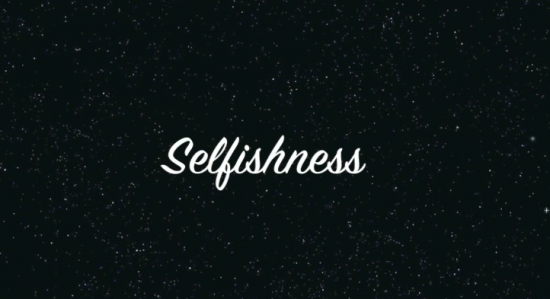 by Jaana Woiceshyn
by Jaana Woiceshyn
Morality poses the question: For what purpose should I live and how? Economics studies how to organize production and trade of goods and services to maximize well-being. The answers to the moral question shape our views of economics—whether we embrace government control or the free market.
There are two primary answers to morality’s question.
The dominant answer is that we should live for the sake of other people, to ensure that their needs are looked after. We are our brothers’ keepers. Only when everyone else’s needs have been met, we can attend to our own. We should place others’ need for food, shelter, a job, a promotion, ahead of our own—selfishness is immoral. This moral code of self-sacrifice is known as altruism, described eloquently by Peter Schwartz in his book: In defense of selfishness: Why the code of self-sacrifice is unjust and destructive.
The other answer is that we should live for the sake of our own happiness, pursuing our interests without sacrificing ourselves to others, or others to ourselves. We should live the best life possible, pursuing our values in every realm, from work and wealth to social relationships, art, and recreation. We should base our relationships on the principle of voluntary trade, applied to both material and spiritual values, from exchanging goods and services to ‘exchanging’ friendship and love. This moral code of self-interest, or rational egoism, was developed by Ayn Rand, captured in her novels and the essay collection, The virtue of selfishness.
Besides these two primary moral choices, there is a third view that agrees with rational egoism about living for our own sake and pursuing our own ends. In contrast to rational egoism, there are no limits as to how to reach those ends: exploiting and sacrificing others is permitted. This view recognizes that self-sacrifice would hinder achieving one’s own ends and defaults to the false alternative: sacrificing others to oneself. This moral view is cynical about the world and the human nature, and can be labeled ‘cynical exploitation.’ It advises: “Do onto others before they do to you.”
It is the unquestioned acceptance of self-sacrifice as the moral ideal that explains today’s economic problems and prevents the adoption of solutions that would facilitate, instead of hinder, human flourishing.
If we embraced the moral code of rational egoism, we would solve all of today’s economic problems … and reach unprecedented human prosperity and flourishing
Slow economic growth, stagnant productivity, unemployment and underemployment that rest on the perceived scarcity of finite resources are all problems that stem from the embrace of altruism.
Despite the moral duty of serving others’ needs imposed by altruism, such self-sacrifice doesn’t happen voluntarily and sufficiently to provide everybody their entitlements, no matter how much we idealize it. Therefore, we have delegated to government the power to enforce involuntary self-sacrifice through taxes, regulations, and welfare programs.
These controls have become institutionalized in the entitlement state, which in the name of altruism takes from the productive to give to the unproductive. The consequence of such forced charity is dis-incentivizing productivity and impeding wealth creation and investment. Just look at countries such as Cuba, France, and even Scandinavia, where both taxes and cost of living are high.
If we embraced the moral code of rational egoism instead, we would solve all of today’s economic problems, including the fundamental issue of perceived scarcity of resources, and reach unprecedented human prosperity and flourishing.
The pursuit of rational self-interest requires freedom, protected by individual rights. This is the political foundation of a free-market economic system, which would solve all the problems stemming from resource scarcity. Such a system would allow people to pursue their own self-interest, using their own minds—the only infinite resource—to be as productive as they can. The only way they could interact with others is persuasion and voluntary trade. Any coercion would be deterred or punished by the government whose only role would be to uphold individual rights.
It is no coincidence that the freest periods in history and in the freest countries have also been relatively the most prosperous, propelled by unparalleled creativity and productivity: England after the Industrial Revolution, America in the 19th century and Hong Kong in the 20th. Today’s examples are many Asian countries and some areas (Silicon Valley) and the least regulated industries (software, consumer electronics) in the United States.
Those committed to altruism as the moral ideal evade such evidence and are averse to free markets. If they really cared about human prosperity and well-being, particularly of the poor, they should reject altruism and embrace rational egoism as the only moral code that makes human flourishing possible.
Jaana Woiceshyn teaches business ethics and competitive strategy at the Haskayne School of Business, University of Calgary, Canada. She has lectured and conducted seminars on business ethics to undergraduate, MBA and Executive MBA students, and to various corporate audiences for over 20 years both in Canada and abroad. Before earning her Ph.D. from the Wharton School of Business, University of Pennsylvania, she helped turn around a small business in Finland and worked for a consulting firm in Canada. Jaana’s research on technological change and innovation, value creation by business, executive decision-making, and business ethics has been published in various academic and professional journals and books. “How to Be Profitable and Moral” is her first solo-authored book.


